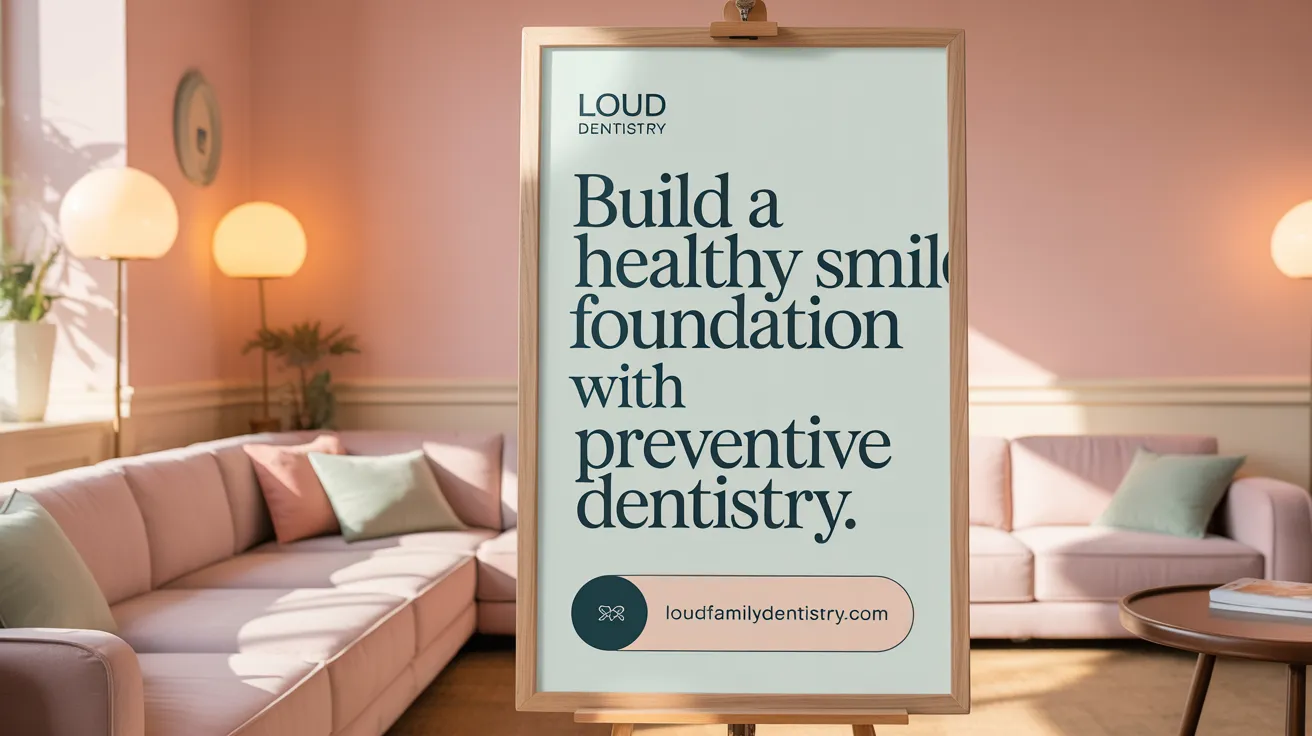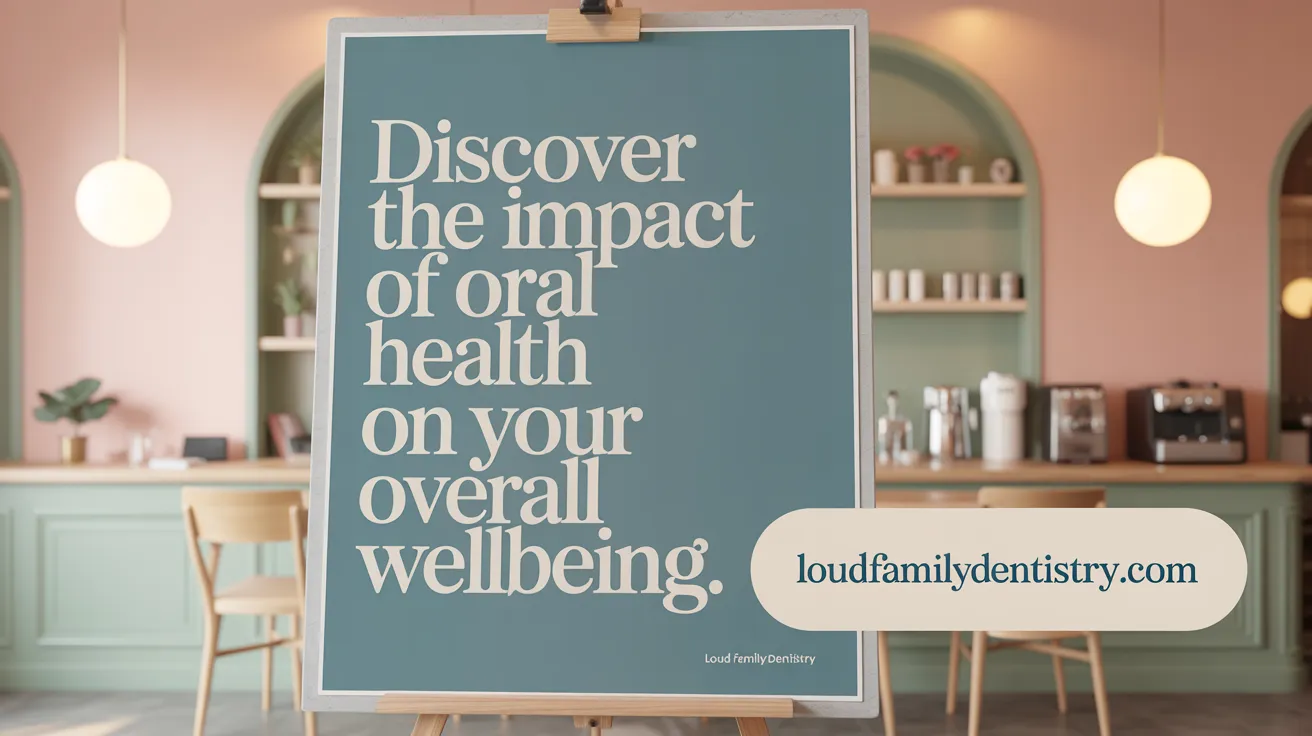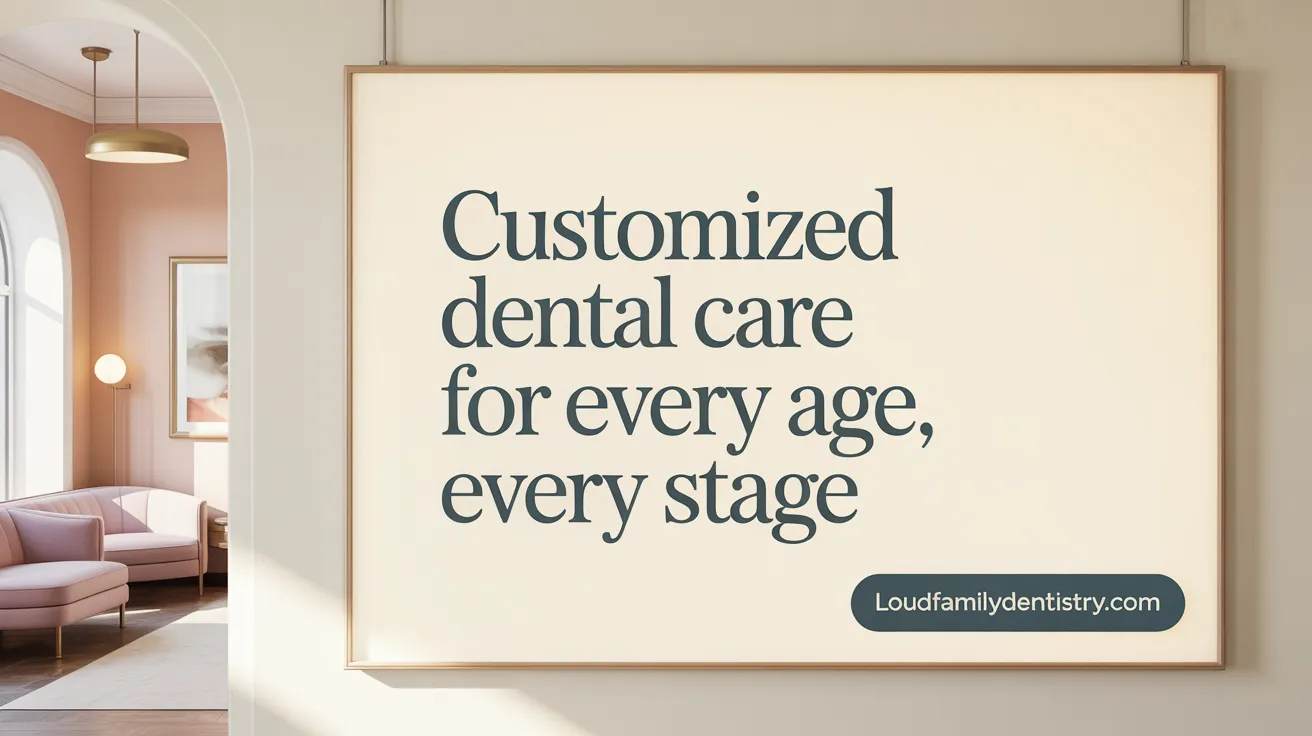The Critical Importance of Preventive Dental Care
Preventive dental care through regular checkups is more than just a routine; it's a cornerstone of sustained oral health and overall well-being. These visits enable early detection and treatment of dental problems like cavities, gum disease, and even oral cancer before they escalate into costly and painful conditions. Understanding why routine dental checkups matter for everyone, regardless of age, helps in fostering habits that protect not only your smile but your general health throughout life.
Understanding Preventive Dentistry: The Foundation of Oral Health

What is preventive dental care?
Preventive dental care is a comprehensive approach aimed at maintaining good oral health and avoiding dental issues. It focuses on regular dental check-ups, professional dental cleanings, diagnostic dental X-rays, fluoride applications, and preventive sealants. Education on proper brushing, flossing, and healthy habits plays a vital role. This approach helps prevent cavities and gum disease or catches them early when treatments are less invasive and more affordable.
What services are typically included in preventive dental care?
Common preventive dental services offered during dental checkups include:
- Oral Exams: Typically every six months to detect early signs of decay, gum disease, or abnormalities. (Routine dental exams)
- Professional Cleanings: Removal of plaque and tartar that toothbrushes and floss can't fully eliminate. (Dental cleaning procedures)
- X-rays: To identify hidden issues like cavities under fillings, bone loss, or impacted teeth. (Dental X-rays importance)
- Fluoride Treatments: To strengthen enamel and reduce decay risk. (Fluoride applications)
- Sealants: Protective coatings, especially applied to children's molars, to prevent cavities. (Dental sealants for cavity protection)
- Personalized Guidance: Dentists and hygienists advise on proper oral hygiene techniques, diet, and lifestyle to support oral health. (Personalized oral care advice)
Why is early childhood preventive care important?
Starting preventive dental care early in childhood establishes healthy habits crucial for lifelong oral health. Services such as fluoride applications, sealants on new teeth, routine exams, and education about brushing and flossing help reduce the risk of cavities and periodontitis and gum disease. Early intervention minimizes the need for costly restorative treatments later in life. (Preventive dental care for children
What roles do dental professionals play?
Dentists and dental hygienists are essential in both performing preventive procedures and educating patients. They provide comprehensive screenings for oral diseases, including oral cancer, assess risk factors, personalize oral care instructions, and encourage good hygiene practices. Through regular checkups, dental professionals monitor oral health changes and intervene early when needed.
How does insurance support preventive dental care?
Many dental insurance plans fully cover preventive services such as exams, cleanings, X-rays, fluoride treatments, and sealants. Coverage encourages routine visits by minimizing out-of-pocket costs, making preventive care cost-effective. However, plan details may vary, including limits on service frequency, so reviewing individual plans is important. (Dental insurance preventive care)
Understanding preventive dentistry empowers individuals to maintain healthier teeth and gums through simple, regular care, reducing the risk and cost of future dental problems.
Early Detection and Intervention: The Lifesaver in Routine Checkups

How do regular checkups aid in early detection of dental problems?
Regular dental checkups are a critical step in catching dental issues like cavities, gum disease, and oral cancer early. Dentists use thorough visual exams, professional cleanings, and diagnostic X-rays in dental checkups to spot signs not visible to the naked eye. This early detection is important because preventive dental care benefits dental problems often do not cause pain or symptoms initially, and finding them early allows treatment to be simpler, less invasive, and more cost-effective dental checkups.
Why are professional cleanings important beyond daily brushing?
Professional dental cleanings go beyond what daily brushing and flossing can achieve by removing plaque and hardened tartar buildup. These deposits can harbor harmful bacteria that lead to tooth decay and gum inflammation. By professionally removing them, cleanings reduce the risk of developing cavities and gum disease, helping maintain healthy teeth and gums.
The role of X-rays in diagnosis
Dental X-rays provide a crucial view of areas hidden from a visual exam, such as beneath fillings, between teeth, and within bone structures. They help detect early decay, bone loss, and possibly oral cancer, enabling timely treatment. Modern digital X-rays are safe involving minimal radiation exposure.
Benefits of catching problems before symptoms appear
Identifying dental issues early means treatments are generally less aggressive. For instance, small cavities can be fixed with simple fillings instead of root canals, and early gum disease such as periodontitis can be managed before it causes tooth loss. Early intervention not only saves discomfort but also reduces long-term dental costs.
Connection between early dental issues and less invasive treatment
When dental problems are found in their initial stages through routine dental checkups, dentists can apply conservative treatments, preserving much of the natural tooth and gum structure. This helps avoid complex procedures, limits treatment time, and enhances oral health outcomes overall.
The Mouth-Body Connection: How Oral Health Impacts Overall Wellness

What systemic health issues are linked to poor oral health?
Poor oral health, especially gum disease and infections, is closely connected to multiple serious systemic diseases. Conditions such as cardiovascular disease, diabetes complications, respiratory infections, and pregnancy-related problems have been linked to the harmful effects of oral bacteria and inflammation entering the bloodstream. This connection highlights the importance of maintaining oral health not only for the mouth but for general wellness (oral infections impact on systemic diseases).
Health conditions associated with gum disease and infections
Gum disease, including gingivitis and more severe periodontitis, can contribute to systemic inflammation affecting the heart and blood vessels. It can worsen diabetes control and increase risks related to pregnancy, including preterm birth. Oral infections may also be linked to respiratory issues by allowing bacteria to spread to the lungs, demonstrating oral health's wide-reaching impact (oral infections impact on systemic diseases.
Oral health's role in cardiovascular disease, diabetes, and pregnancy complications
The inflammation triggered by gum disease can promote the development or progression of cardiovascular conditions. Similarly, chronic oral infections may compromise blood sugar management in diabetics, making the disease harder to control. Pregnant women with poor oral health face greater risks for adverse outcomes, emphasizing the need for preventive care during pregnancy (Preventive dental care.
Why are oral cancer screenings an important part of dental checkups?
Dental visits routinely include oral cancer screenings to detect early signs of abnormal lumps, sores, or discolorations in the mouth and head/neck regions. Early detection through these screenings enables timely treatment, greatly improving the likelihood of successful outcomes and survival rates (mouth and head/neck cancer examination).
Impact of oral infections on general health
Oral infections can allow bacteria to enter the bloodstream, potentially causing or exacerbating systemic conditions. They increase the risk of infections such as endocarditis and contribute to chronic inflammation that affects overall health. Preventive dental care helps mitigate these risks by managing infections before they spread or worsen (Importance of dental checkups.
Maintaining regular dental checkups and good oral hygiene is vital to supporting not only oral but also overall systemic health, preventing serious complications and improving quality of life (Preventive dental care benefits.
Economic Advantages of Preventive Dental Care: Saving Money and Avoiding Pain

How does preventive dental care reduce overall dental treatment costs?
Preventive dental care is a financially smart approach that cuts down the total cost spent on dental treatments over time. By catching dental problems such as cavities and gum disease early, treatment becomes simpler and less expensive. This early intervention often prevents the necessity for costly and invasive procedures like root canals, crowns, or tooth extractions.
Many dental insurance plans recognize the value of prevention and fully cover routine checkups, cleanings, and X-rays. This coverage encourages patients to seek care regularly, keeping their oral health in check and avoiding heavy expenses from advanced dental issues.
What is the economic impact of untreated oral diseases on communities?
Untreated oral problems have a broad economic impact on communities, costing billions yearly in emergency dental care, lost work productivity, and general healthcare expenses. Emergency dental visits are especially costly and frequently arise from preventable conditions.
Preventive community strategies, such as community water fluoridation and school dental sealant programs, cost a fraction of emergency care and yield significant savings by reducing the prevalence of cavities and severe dental disease. These programs improve access to preventive care, particularly for underserved populations, easing financial burdens both on families and healthcare systems.
By investing in preventive dental care, individuals and communities benefit economically through lower out-of-pocket expenses, reduced treatment needs, and improved overall health outcomes.
Maintaining Healthy Habits Between Visits: Supporting Preventive Care at Home
What daily habits support good oral health?
Maintaining strong oral health hinges on consistent daily habits practiced at home. Brushing your teeth twice daily with fluoride toothpaste is essential to remove plaque, followed by flossing once daily to clean between teeth where brushes can't reach. Including tongue cleaning further reduces harmful bacteria and improves breath freshness (Proper oral hygiene tips).
Diet plays a vital role; limiting sugary and acidic foods protects against cavities and enamel erosion (Good oral hygiene practices). Avoiding tobacco products and vaping is crucial, as these habits increase risks for gum disease and oral cancers (Preventing Oral Diseases and Conditions). Using a mouthguard during sports protects teeth from injury (Preventive Dental Care).
Replacing your toothbrush every three to four months ensures that bristles remain effective at clearing plaque and reduces bacterial buildup that could contribute to oral issues (Toothbrush replacement guidelines.
How does personalized dental advice enhance home care routines?
During dental checkups, dentists provide personalized advice tailored to your unique oral health condition, lifestyle, and risk factors. This guidance may include specific brushing and flossing techniques, lifestyle modifications such as reducing sugary food intake or quitting tobacco, and recommendations for dental products best suited to your needs (Personalized dental advice.
By following personalized dental advice, patients can optimize their home care routines, effectively supporting preventive dental care and reducing the likelihood of future problems. This ongoing partnership between patient and dental professional ensures that oral health maintenance continues successfully beyond the dental clinic (Routine dental visits importance.
Preventive Dentistry Across Life Stages: Tailored Care for Every Age Group

How does preventive dental care differ for children and adults?
Preventive dental care varies notably between children and adults. For children, it centers on establishing healthy habits early, including brushing twice a day with fluoride toothpaste, daily flossing, and dietary guidance. Key preventive treatments like fluoride applications strengthen enamel and help reduce decay. Dental sealants are applied directly to children's molars soon after eruption to provide lasting protection against cavities. Pediatric care also includes monitoring growth and recommending orthodontic referrals when necessary.
In contrast, adult preventive care focuses on maintaining oral health through regular professional cleanings, often more advanced to address accumulated tartar and gum inflammation. Dentists monitor gum health vigilantly to detect early signs of periodontal disease, which can lead to tooth loss if untreated. Adults also receive evaluations for wear, bite problems, and may get personalized advice to adjust oral hygiene practices. Both groups benefit from education and individualized care plans tailored to their unique needs.
What challenges do elderly patients face in maintaining regular dental care?
Older adults often encounter several barriers to regular preventive dental care. Financial constraints can limit their ability to afford dental services. Physical challenges like mobility issues or transportation difficulties also play a role. Additionally, past negative dental experiences or anxieties might discourage consistent visits. These obstacles contribute to irregular attendance, poorer oral hygiene habits, and higher prevalence of conditions like periodontitis and tooth decay.
Regular dental checkups for the elderly are critical, as they are linked to fewer dental emergencies and improved quality of life. Promoting access, patient education, and tailored dental services can help this age group maintain good oral health, which also positively impacts their oral infections impact on systemic diseases.
How do socioeconomic factors affect preventive dental care access?
Socioeconomic status significantly influences access to preventive dental care. Individuals with lower income often face challenges such as lack of dental insurance, high out-of-pocket costs, and limited availability of local dental providers. Consequently, they are less likely to attend regular checkups and more prone to untreated cavities and gum disease.
Disparities in access contribute to poorer overall oral health outcomes in disadvantaged populations. Efforts such as community water fluoridation, school sealant programs, and expanded coverage of preventive services under dental plans aim to reduce these gaps. Policies addressing socioeconomic barriers to preventive dental care focusing on affordability, education, and improved service availability play vital roles in promoting equitable preventive care.
By addressing life stage-specific needs and socioeconomic barriers, preventive dentistry supports healthier smiles and overall wellness across the lifespan.
A Commitment to Lifelong Oral Health
Routine dental checkups are an essential pillar of preventive dental care that benefits people of all ages. By enabling early detection, professional cleaning, and personalized guidance, regular visits help maintain healthy teeth and gums, prevent serious health issues, and reduce costly treatments. Maintaining oral health is integral to overall wellness, influencing conditions beyond the mouth. Embracing preventive care at home and overcoming barriers to access can foster healthier communities and enhanced quality of life. Ultimately, committing to regular dental checkups is a wise investment in your smile, health, and confidence throughout life.
